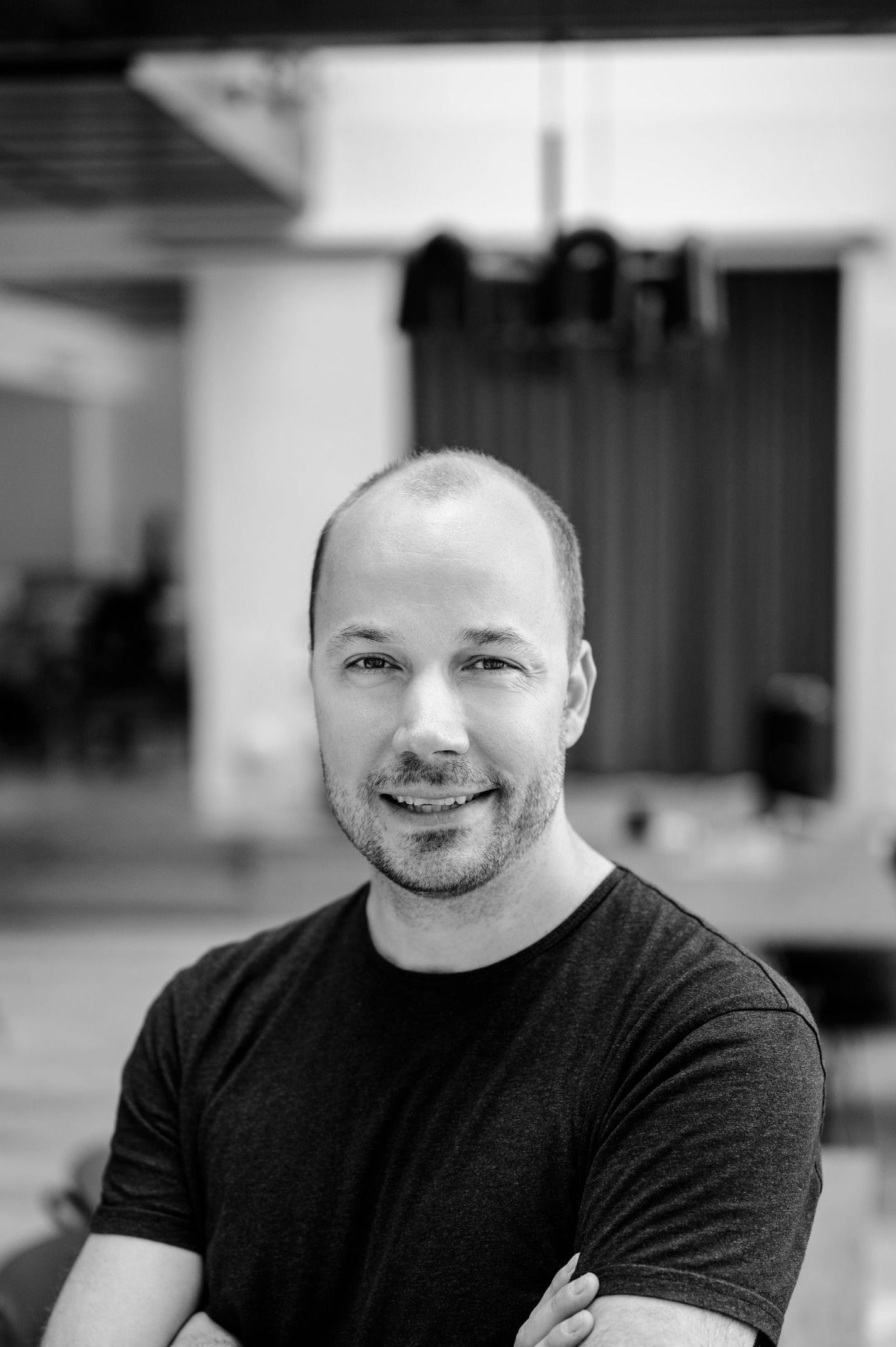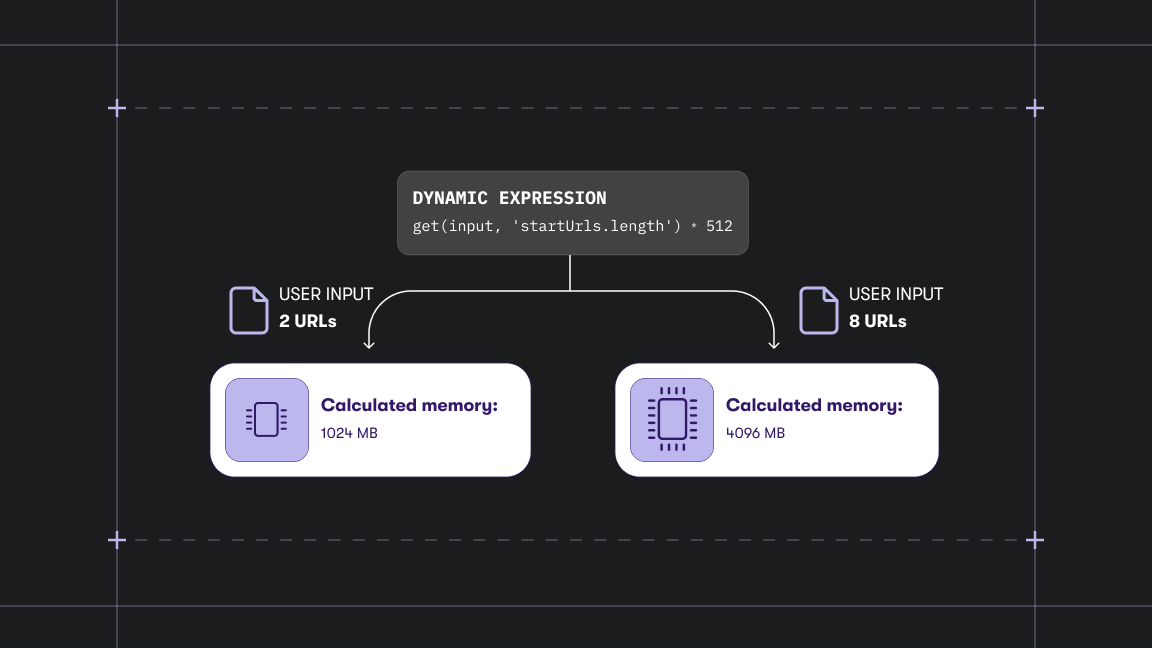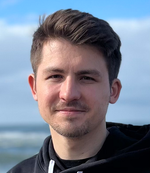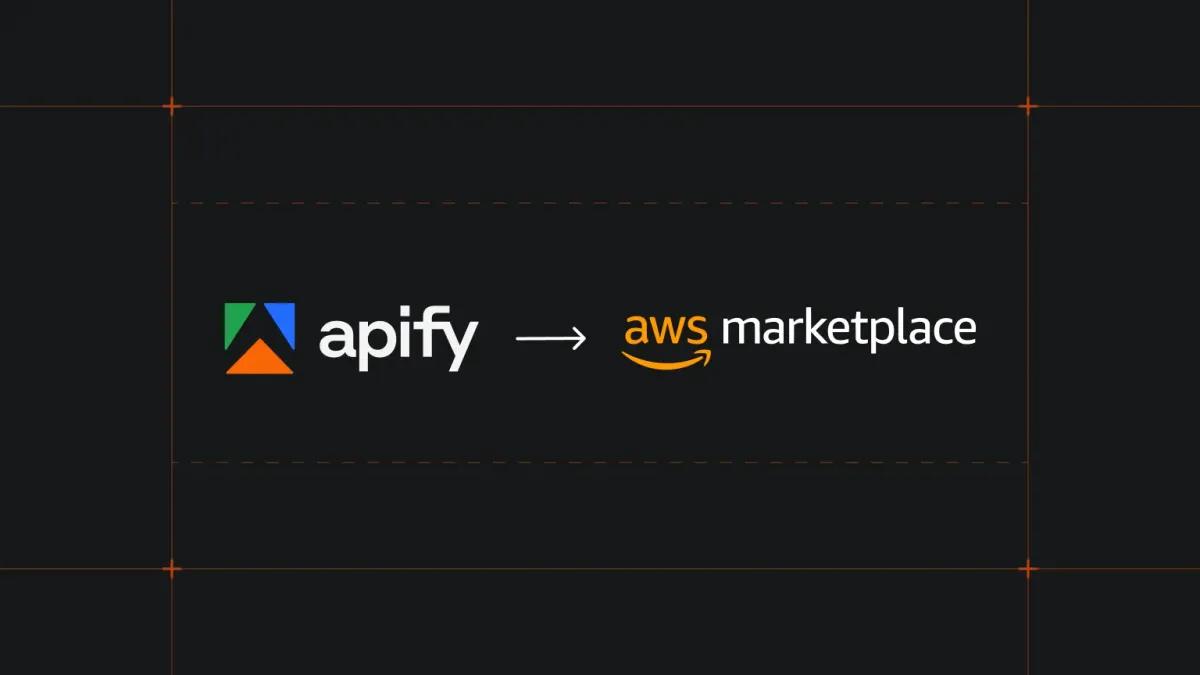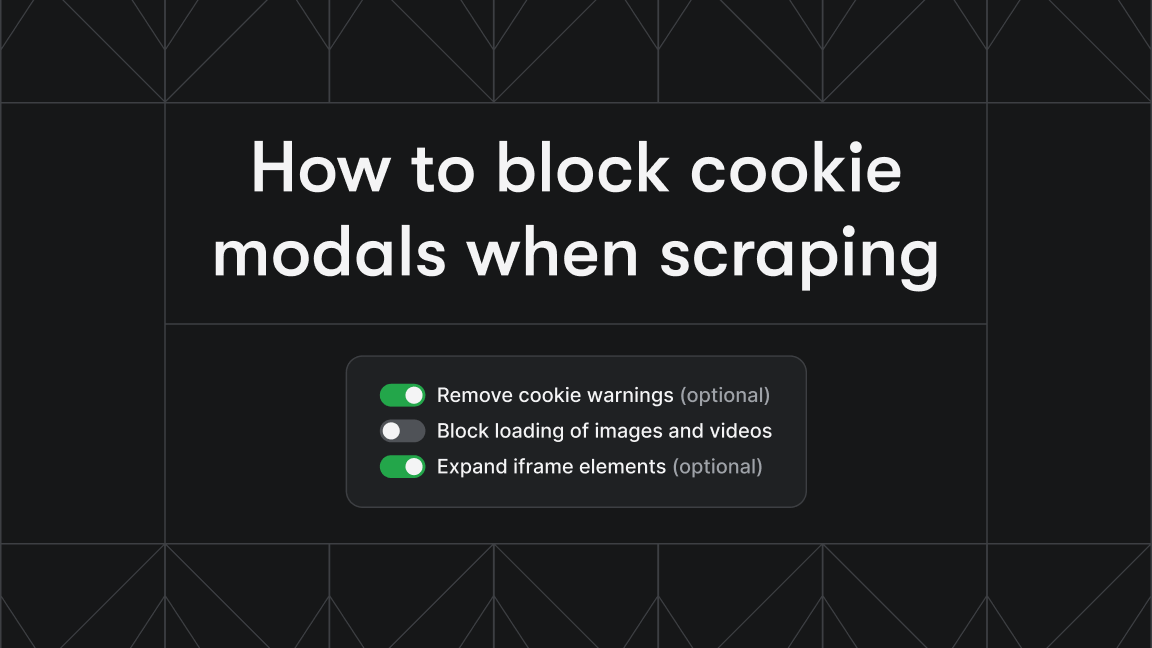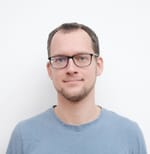The idea of this experiment was simple: there are a lot of people who might have a startup idea but are reluctant to pursue it full-time just because they have a day-to-day job or are enrolled at a university. All they might need to take off is a gentle push: two months of guidance from the world’s most prestigious startup community and a grant of $12,000 which is just enough to cover living costs for that period. If this worked, YCF might be the way for YC to scale their business to a much larger number of companies and founders.
Application
We found out about the YCF pretty randomly while performing our favorite procrastination activity — reading Hacker News. At that time, we were only working on (what would become) Apifier (now Apify) part-time for a couple months. All we had was a command-line tool, 5 early users and a list of possible domain names for the new cloud service. YCF immediately felt like it was designed for us and it was clear we had to give it a shot. We recorded a one-minute video, filled in an application form and were ready to send it to a YC alumnus friend for review …. at which moment I accidentally clicked “Submit” button instead of “Save draft”, full 3 days before the deadline. Oh well, the die was cast and at least we didn’t have to spend any more time on it.
A few days later Sam Altman tweeted that there were about 6500 applications to the YCF. Considering YC’s original target was only 20 companies, our chance of success was about 0.3%. We thought our dream was over, but at least filling the application was a valuable exercise, time to get back to work. You can’t imagine my surprise when I received an email with an invitation for an interview. Here’s how Jakub looked like when I broke the news to him:
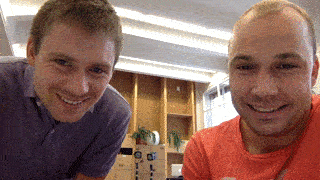
Maybe the accidental early submission gave the guys from YC more time to read our application and helped us to beat the odds; we shall never know. The interviews were held just one week later, either remotely over Skype or in person in Mountain View, CA. To maximize our chances, we decided to come in person and quickly booked our flights from Prague, Czech Republic. That was 10,000 km for a 10-minute interview.
Interview
To prepare for the interview, we put together a simple demo of our software, compiled a list of likely questions and watched a few episodes of Silicon Valley. Obviously, there was zero information available about the YCF interviews, so we had to guess from the information about the regular YC interviews. Fortunately, the actual interview wasn’t as stressful as we feared after reading/watching all the stuff available on the web. There were two interviewers at the table and the atmosphere was very friendly. The time flew as quickly as people said it would — the interview was over before we had a chance to mention most of the points that we planned. If you asked us that day how it went we couldn’t tell you whether we did well or not. We spent the evening in San Francisco and the next morning hit the scenic Highway 1 to Los Angeles, only to find that large parts of the highway have no cell coverage so we couldn’t check for an email from YC, which was a truly unnerving experience. Eventually, the email arrived and it said we were selected. Woohoo!
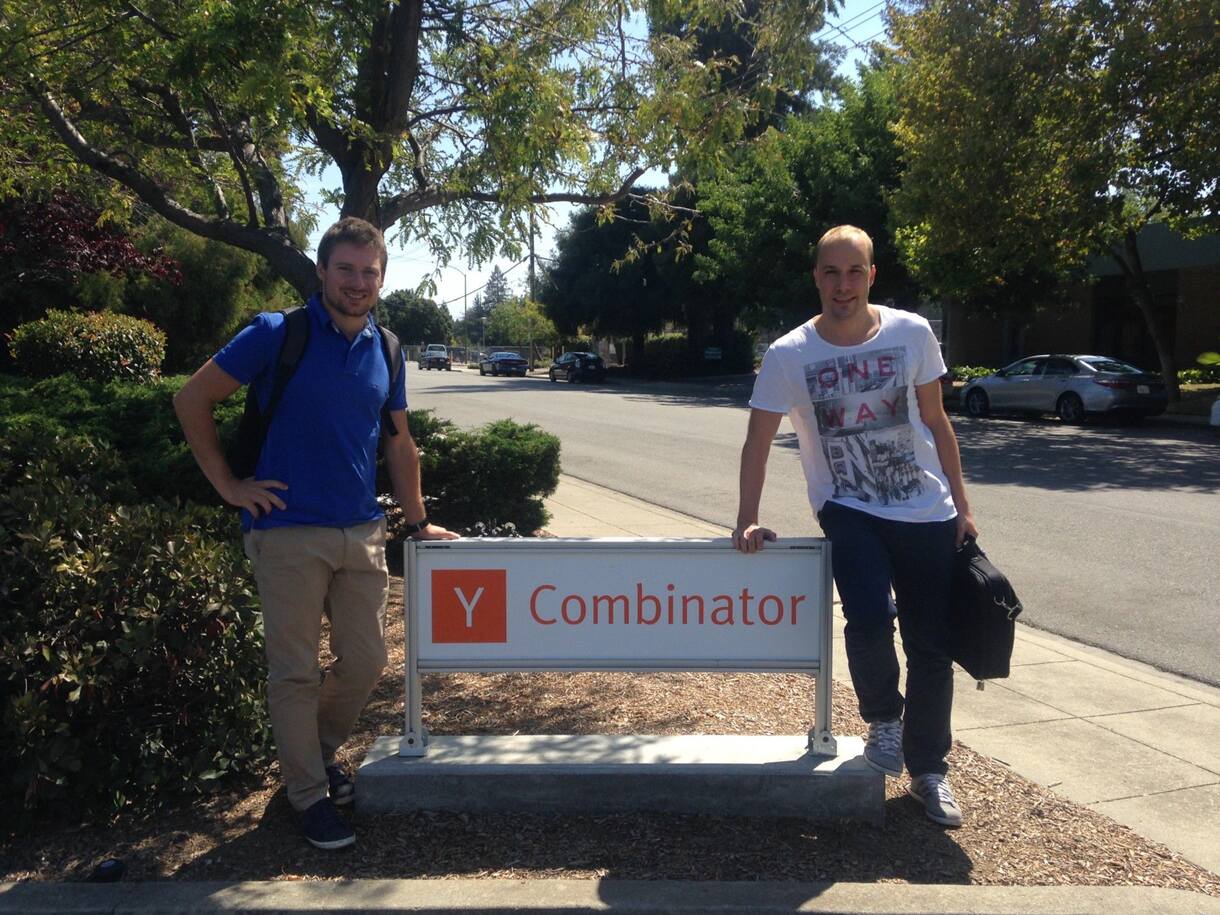
If you’re going to San Francisco… (or Mountain View)
The initial euphoria only lasted until the remote YCF kickoff event, after which it was replaced by a sense of urgency and responsibility. The main message from YC was clear: we take this seriously and so should you, you have to work full-time on your project and the time to start is not tomorrow, it is now! In a very short time, we had to book flights, find accommodation in the Bay Area, arrange things at home, and most importantly, build a product people love so much that they will tell other people about it. Only 33 teams made it this far and we were not going to screw this opportunity up.
Unlike the full YC program, YCF didn’t require the teams to move over to the Bay Area for the duration of the program. However, to make the most out of it and to avoid distractions, doing it remotely was out of question for us. For that same reason, we decided to live in Mountain View rather than San Francisco. If you’ve never been to Mountain View, trust me when I say it’s a very, very quiet city (and I’m not counting the ubiquitous Caltrain horn).
Finding suitable accommodation in Mountain View for such a short period of time and with a limited budget is no easy undertaking. By sheer luck, we were able to rent half of the so called Hacker House, a legendary house owned by wonderful landlords Lily and David. Hacker House has a rich history and in the past 5 years it exclusively hosted YC companies, including several well-known ones. We were told the house had a good spirit and all the companies who used to live there eventually did very well, so we shouldn’t worry.
The kick-off
The YCF officially kicked off at an event held at the YC office in Mountain View. This was the first time all the teams and YC partners actually met in person. Each team briefly presented what they are working on and the partners outlined what the fellowship is about in several talks. One point was expressed very clearly: we should never ever call ourselves YC founders; we are YC Fellows. The kick off was concluded with a dinner and an entertaining talk by Alexis Ohanian of reddit fame. All the teams had a one-to-one meeting with one of the YC partners to define their goals for the fellowship.
And that was it, time to go home and swim on your own.
The development process
If this was a movie, this part would only take a few seconds and would be accompanied by some joyful music and scenes full of smiles, high-fives and occasional pool parties. The reality looked more like this:
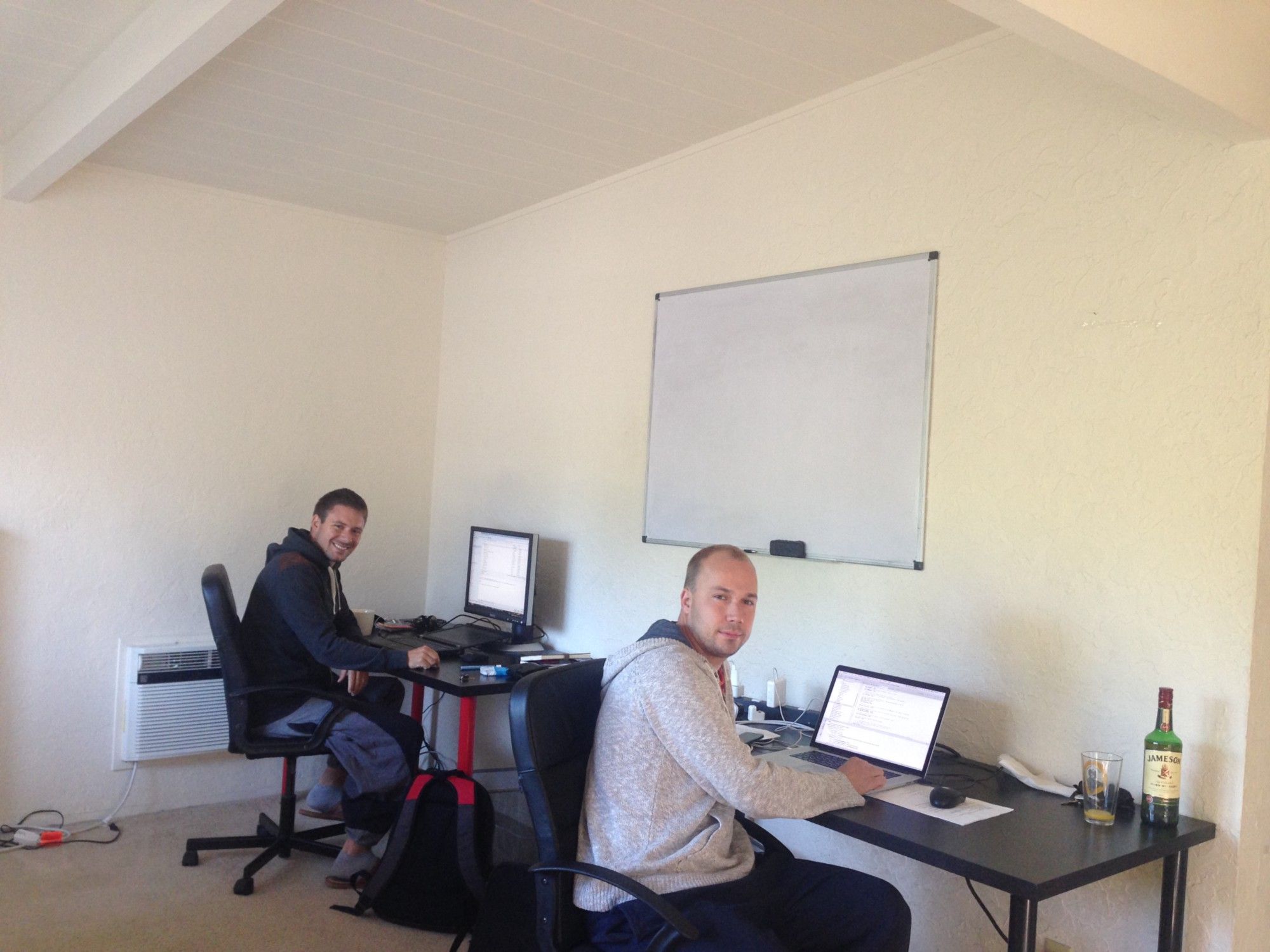
In a way, this life was simple. You wake up in the morning, have breakfast, start coding, have lunch, continue coding, have a dinner, do more coding and then you realize it’s already 3 am and you should probably go to sleep. Repeat the next day. YC partners told us we should only work on the product, talk to users, eat, sleep, exercise and everything else is a waste of time. We tried to do exactly that. Although you don’t get to see much daylight, it’s pretty amazing how much work can be done if you work 12–14 hours a day, 7 days a week. Clearly, such a lifestyle cannot be sustained too long before you burn out, but 2 or 3 months are certainly doable and you learn a lot about yourself (and your cofounder!).
Our contact with YC was limited to meetings called office hours, which were held either in person or over Skype for remote teams. Additionally, all the teams had to fill a weekly progress report, including growth metrics, burn rate, projected runway, questions to YC partners, etc.
Every two weeks there were group office hours where 5 or 6 teams sat down with two YC partners to discuss their progress and learn from each other. This hour was always very intense and you had to come well prepared, be ready to answer tough questions, know your numbers by heart, etc. Nobody wanted to show a lack of progress which made the days leading to group office hours very busy.
Additionally, every other two weeks there were individual office hours where we met with another full-time or part-time YC partner for about 20 minutes to discuss specific issues we were currently dealing with. We tried to meet as many partners as possible to get different perspectives. These meetings were always extremely motivating — talking to someone you typically only read about on Wikipedia and seeing they are normal people who at some point dealt with the same problems as you do now makes you believe you too can succeed. One time we had such a meeting on Friday afternoon in San Francisco and planned to stay for a few beers with friends in the evening. After the meeting we were so hyped that we cancelled the beers, went back to Mountain View and worked all night. This is the YC effect.
Lastly, each of the teams was assigned a mentor, usually a successful YC alumnus that the team could meet twice during the fellowship to get some startup advice. n addition to the guidance from successful YC alumni, the teams benefited from a structured mentorship program, fostering ongoing support and advice throughout the fellowship to enhance their startup journey. This meeting was quite similar to meetings with YC partners, except that it took place in a nicely furbished company offices in downtown San Francisco, further increasing our motivation.
Perks
Besides advice and a huge pool of knowledge, YC provided the teams with one more essential thing: perks. YC has agreements with a lot of companies to provide various benefits to the YCF companies, ranging from a free shipment of Soylent:
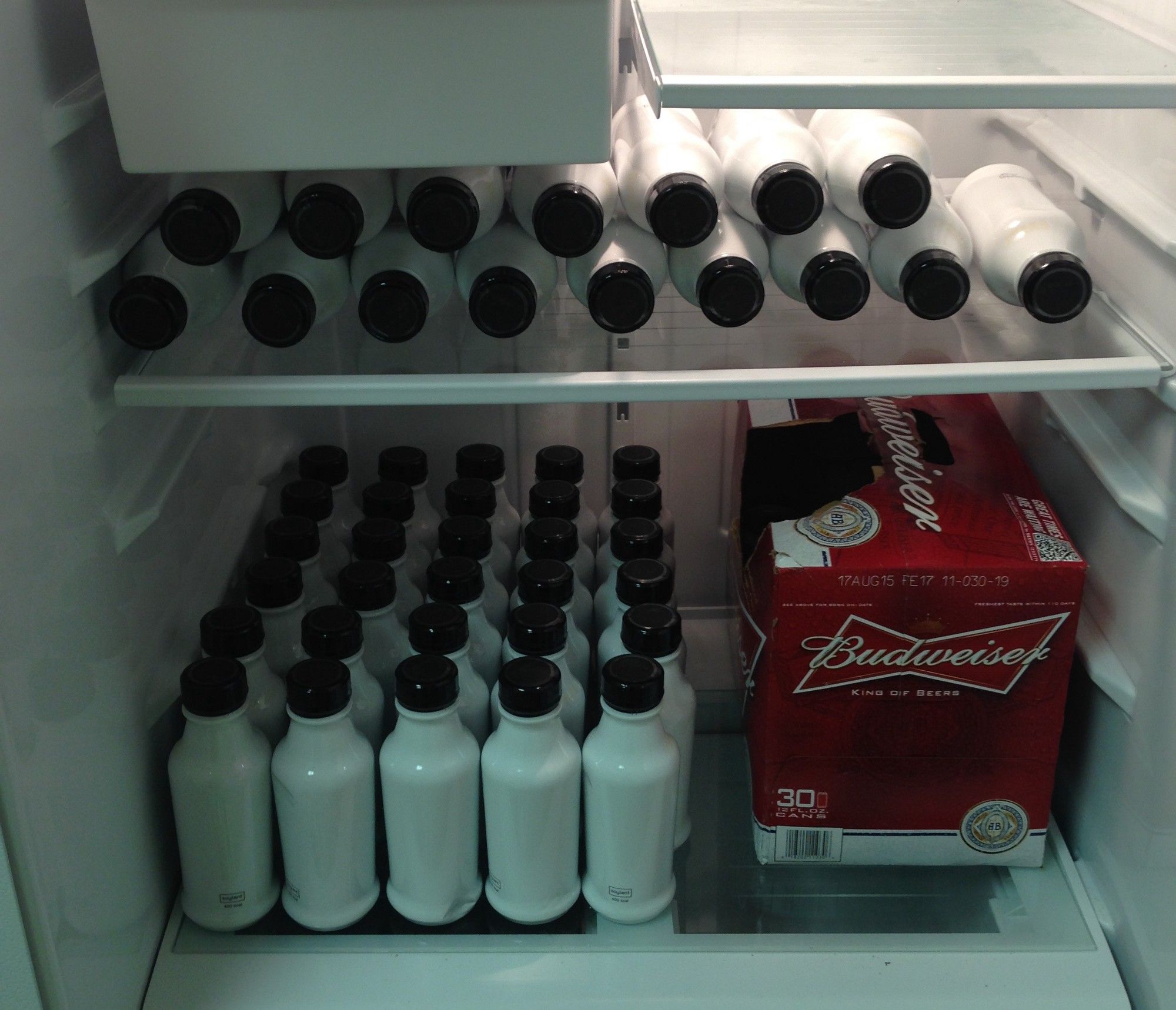
to discounts or extended free-trial periods for various services, to one absolutely crucial benefit: $25k worth of credits on Amazon Web Services. If you’re an online startup without funding, the last thing you want to spend your time on is worrying about server costs.
Launch
At the beginning of the fellowship, Apifier was still a command-line tool. The number one task was to turn it into a cloud service that would fit the magical term minimum viable product and then show it to Hacker News (HN). The plan was to complete this in the first week of the fellowship. Founders are expected to be optimistic, but we took it to another level — half way into the fellowship the service still wasn’t running. Days were quickly passing by and our frustration grew. The number of tasks necessary to launch such a service is large and each of the tasks takes longer and longer as the system gets more complex — a vicious circle. The main lesson we learned during this time was that it’s really important to keep realistic expectations in order to avoid deterioration of your morale.
But then, on 20th October 2015, the day finally came and we showed Apifier to HN. If you don’t know yet, Apifier is a hosted web crawler for developers that enables them to extract structured data from any website. We wanted to let people run an example crawler directly on the homepage with a single click, without a need to sign up. And what is a better example than to crawl HN itself. Only later we realized our users made us collect an interesting dataset showing how Apifier itself performed on HN over time.
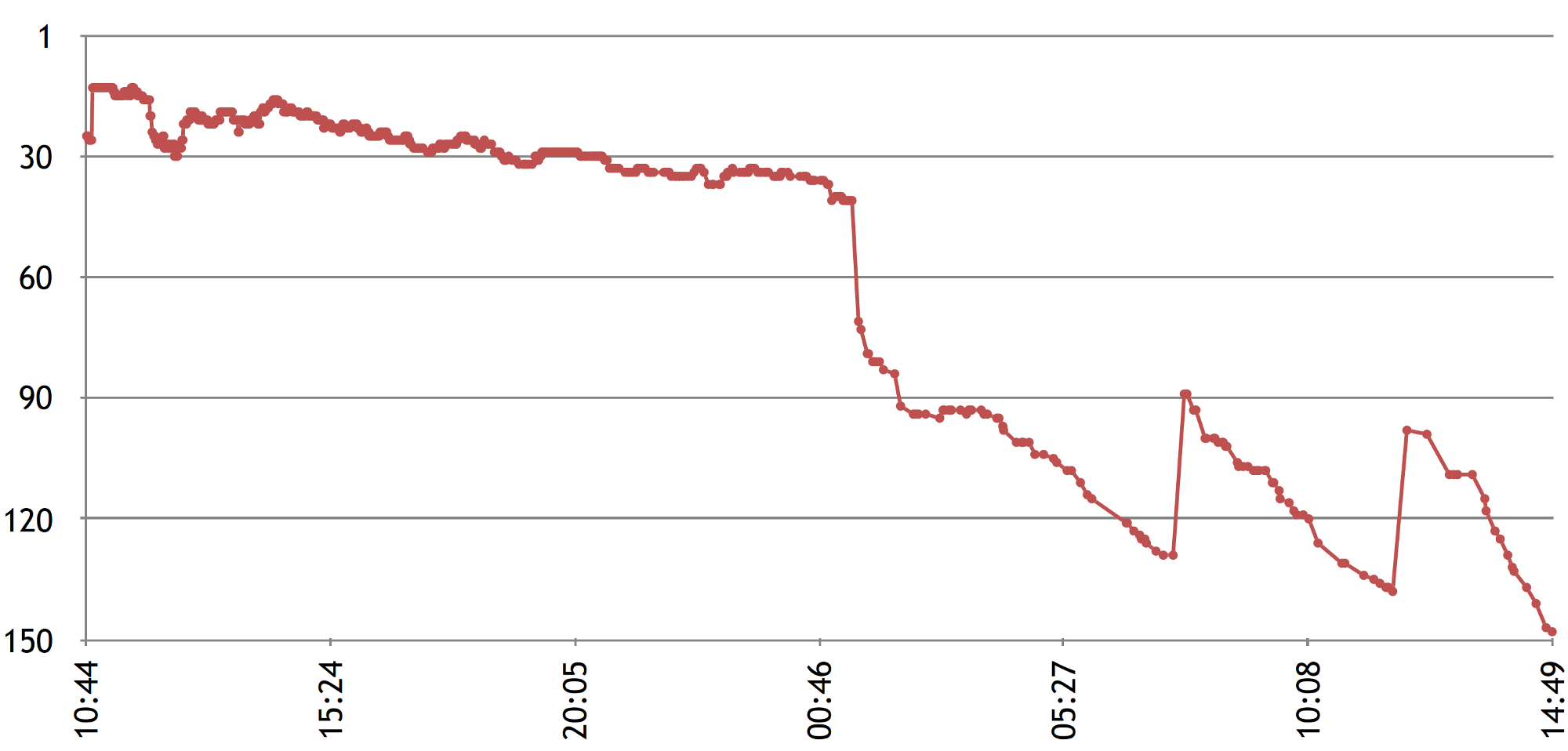
As expected, the number of HN crawls executed on Apifier was highly correlated with our position on HN — we were getting most users when we were ranking well on the front page. We thought it would be a great success if we get more than 100 upvotes and make it to the front page; we ended up spending almost 10 hours there and got 101 upvotes :)
In total we had about 2,200 visitors, 1,400 ran the demo, 120 signed up. A lot of the first users were technical people, who gave us really valuable feedback and helped us find a lot of issues and improve the service dramatically.
Two weeks later we decided to post the much-improved Apifier on Product Hunt (PH). Thanks to the YC, this was incredibly easy, because many YC partners have a power to post to the PH’s front page, which is something most startups without contacts in the Bay Area can only dream of. We also set up a crawler for PH as a demo on our home page, enabling us to collect similar data as for HN. By a coincidence, a fellow YCF company called StrongIntro launched on PH the same day. It was an epic battle:
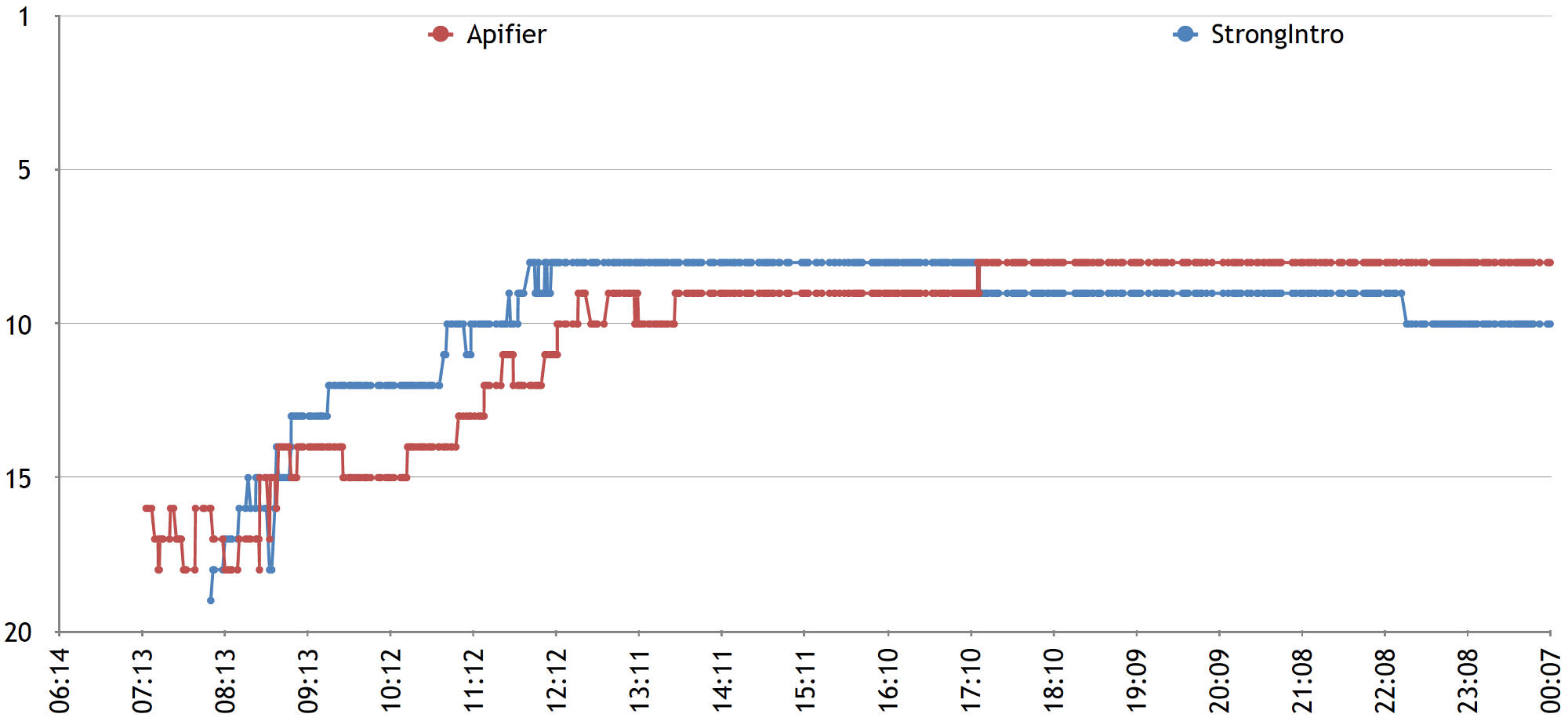
By the end of the day, we ranked 8th, which meant we were featured on PH’s front page for a few more days, bringing us in total 1637 visitors, 783 of them ran a demo and 140 signed up. Unlike visitors from HN, the users that came from PH were more business-oriented people typically unable to set up crawlers themselves, but on the other hand they represented much better leads and brought very interesting business use cases to our attention.
In summary, both the Hacker News and Product Hunt posts generated amazing initial interest in our service. In fact, we haven’t done much PR activity since then and even months later we are still getting a lot of new users.
Demo day
The traditional YC programme is concluded by a demo day, an event where founders pitch their companies to investors with a goal to raise money. Although the goal of the YCF wasn’t really to raise money, we also had a demo day. Instead of investors the audience were YC partners and alumni, and the goal was to practice pitching your company, attract valuable users from the YC community and do networking. Initially we thought this would be taken much less seriously than the traditional YC demo day, but after watching Kevin Hale’s seminar on presenting, it became clear we’d have to prepare very, very well. I wish I could share here the funny (and devastating) feedback that we got to a first version of the presentation each team had to record on video, one could directly use it as a script for a new episode of Silicon Valley.
On the day, each team had two dry runs and then they were good to go:
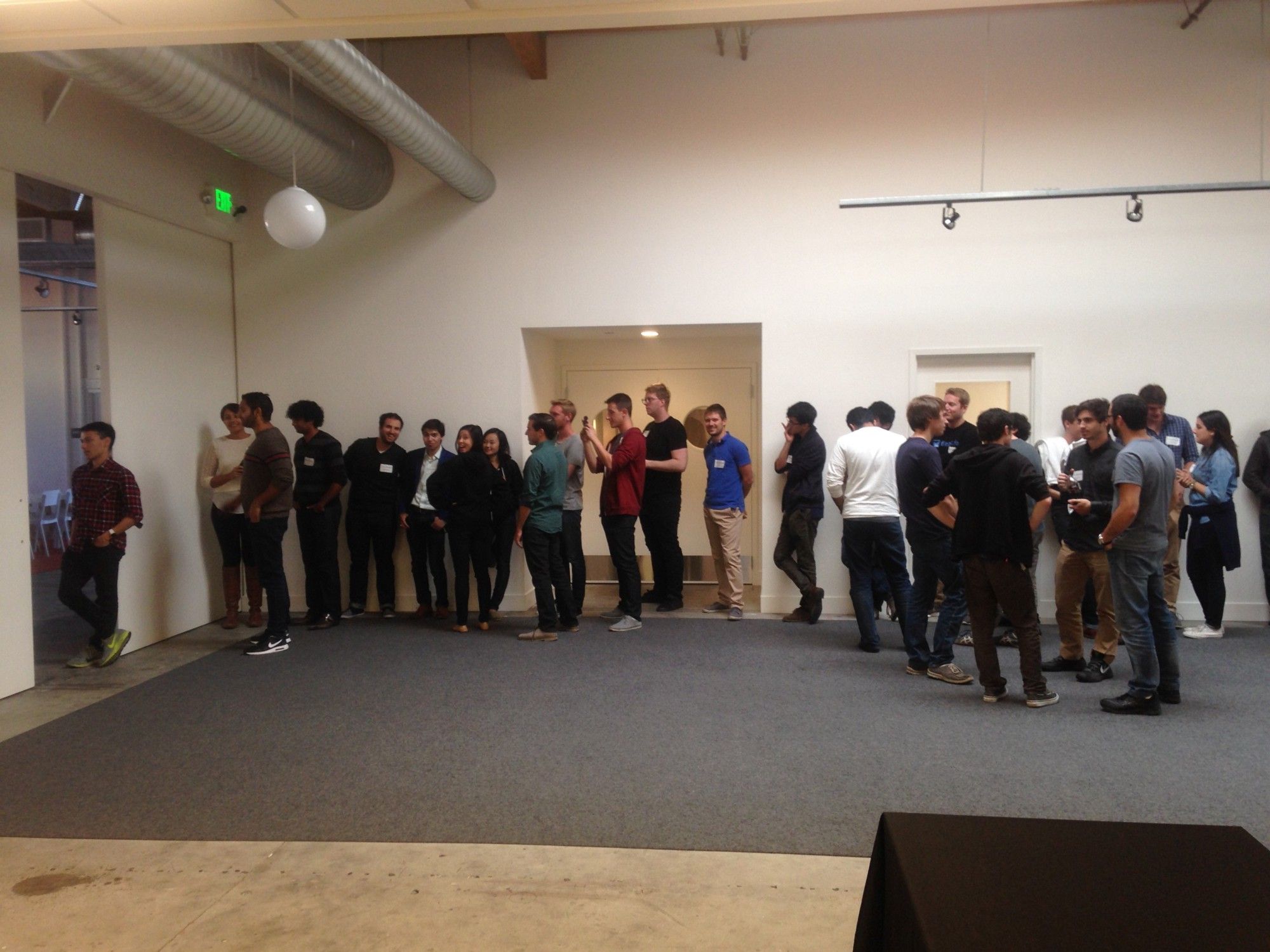
After the presentations, each team had final individual office hours with one or two YC partners, followed by beers and a BBQ. This was the last time all the teams were together.
(Not quite) the end
On the last day of the YCF, Kevin Hale and Qasar Younis held (in their typical almost-stand-up-comedy-like style) a final event at YC headquarters to debrief the teams, give advice for future steps and also to get feedback from them. They made it very clear that the YCF is over now and that unlike the full YC programme, we shouldn’t expect any future privileges from the YC community.
All YCF teams were encouraged to apply to the full YC program. Apart from an extended application deadline, the teams were given no special treatment and went through the same process as other companies. We too applied with Apifier but unfortunately didn’t make it through. Although we felt that we’re probably not ready for the full YC, because we didn’t have the numbers and the product was not mature enough, still we couldn’t avoid feeling a little bit of disappointment.
Travelling back to Europe we finally had some time to reflect on the whole YCF experience, forget the disappointment from our failed YC application and realize how lucky we were to have a chance to participate. In the two months of the YCF we did more work than we’d normally do in half a year (going back to a normal 8-hour work schedule felt almost like a holiday). At the beginning of the fellowship we thought that after 2 months we’d know whether we had a company or not, and then on the way back we knew we had it. For that, we are extremely grateful to the YC, in particular to Matt Krisiloff, Kevin Hale, Kat Manalac and Qasar Younis – you guys really built an amazing program.
The YCF helped our young company take off and set its course. Of course, the road ahead of us is still long and we don’t even know where it goes, but at least now we’re on the road. Although the program already looks pretty different now and will most likely evolve in future, if you’re considering a startup idea we have one simple piece of advice for you: Apply to YCF now and think about it later!
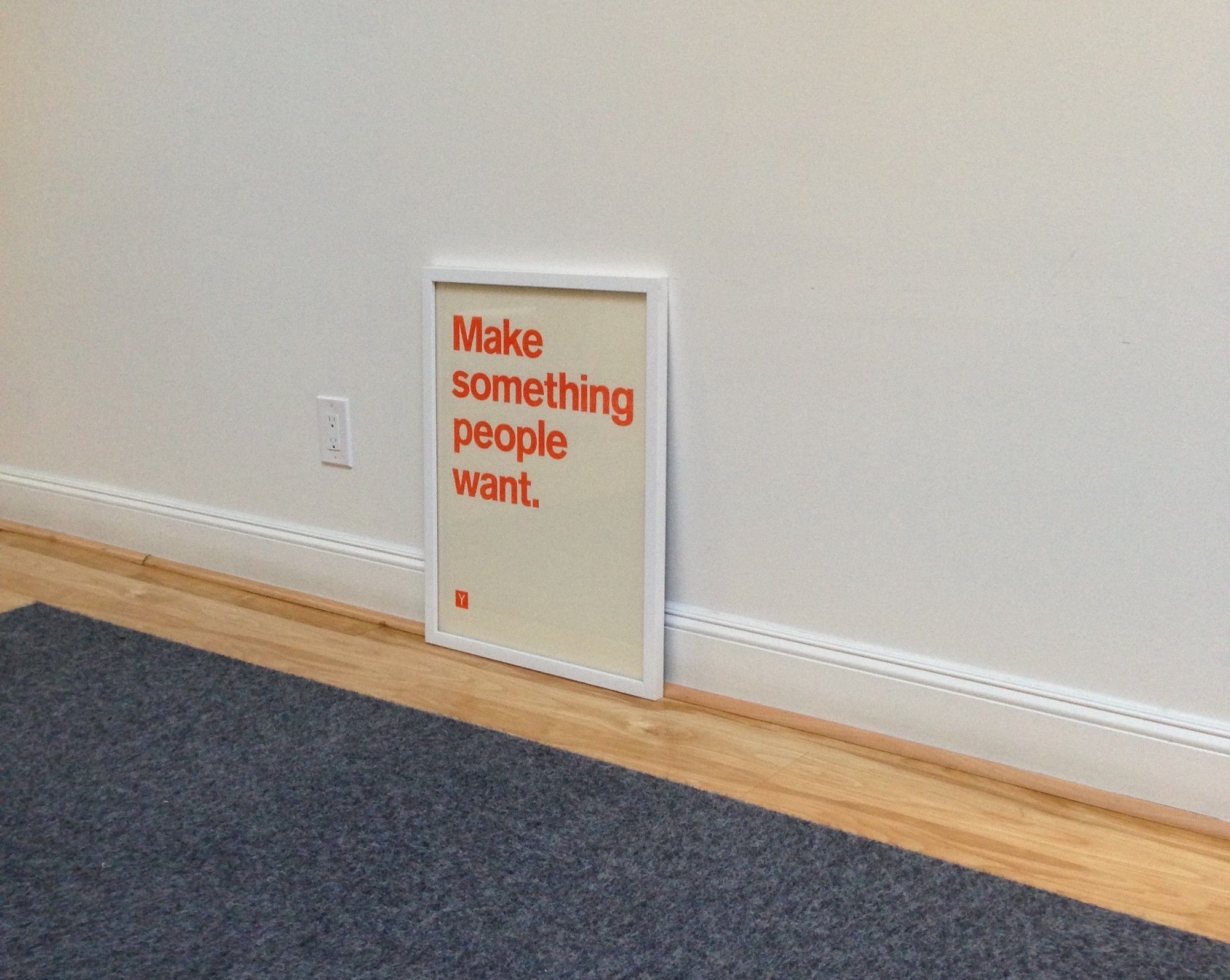
If you've landed on this page, you might like to know that Apifier became Apify, and many years later is now the only full-stack web scraping and automation platform on the market 💪🚀


